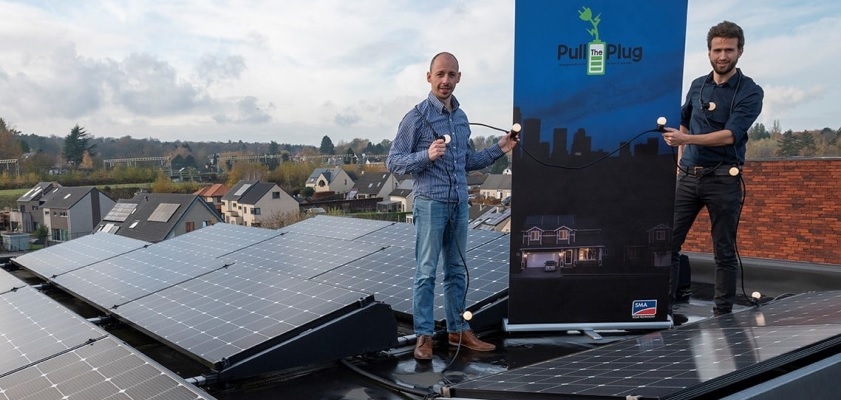Luppens has been working in the solar energy sector for more than 16 years. In 2019, he founded Pull the Plug together with Maxim Mat. The credo of this company is energy-autonomous living and working. However, according to him, that is something completely different from ‘cutting’ the cable and disconnecting from the power grid.
Flat load
‘At the beginning of this year, the Flemish energy regulator introduced a capacity tariff,’ says Luppens. ‘In the run-up to this decision, which was postponed several times, there was a great social commotion. In fact, it concerns a reallocation of distribution costs; a contribution for the peaks you create through your electricity consumption. However, communication surrounding the introduction was poor. It was seen by many as a flat additional tax. Emotions ran high. “I would rather buy an expensive battery than give money to the state,” that’s how it goes. The demand for off-grid systems has increased considerably since then.’
Compromise on comfort
Pull the Plug also regularly receives knocks on the door from people who want to operate completely independently of the electricity grid. The advantages are usually nil, the disadvantages are often significant, according to Luppens. ‘That starts with the costs. To be able to continue completely independently of the grid, you need a lot of solar panels and a very large battery. Most people can’t afford that. And even then you won’t make it in the winter or you’ll have to compromise a lot on comfort.’ In addition, it indicates overproduction in the summer, potential green energy that remains unused when the batteries are full and there is no consumption.
Absurd
Luppens: ‘Another misplaced sentiment is the fear of power shortages as a result of the phasing out of nuclear power stations. A lot of commotion has also arisen about this, especially due to an official national disconnection plan under which postal codes in Belgium can be disconnected from the public power grid in phases. There are now a number of Flemish companies that are responding to this with advertisements for off-grid systems. If an assignment is made, a diesel or gas generator is often added to bridge the difficult winter months. That is absurd, very damaging to the environment and climate. So we shouldn’t go in that direction – everyone for themselves.’
Indispensable feature
As much energy autonomy as possible, that is the starting point of all Pull the Plug projects. At least solar panels and a battery are combined. The advice of maintaining a grid connection is standard. This makes additional revenue models possible, such as energy trading and energy sharing, so that overproduction of solar power is never wasted. At the same time, Pull the Plug’s energy systems can always go off-grid. Luppens sees this emergency power function as a nice additional feature of the home and utility building of the future.
Lnice feeling
“The problem of PV inverters switching off due to overvoltage on the grid is not a major problem here, but it is expected that it will increase,” says Luppens. ‘With the growth of solar and wind, power security may become less. The energy grids in the Netherlands are filling up. This is hardly the case in Flanders, but what is not yet possible can still come. It is therefore not inconceivable that you can save money in the future by temporarily disconnecting from the grid or certainly not injecting overproduction. Going off grid – and at the same time being able to continue to produce, store and use solar power – therefore brings benefits for the owners and the energy transition. And many of our customers say: ‘I’ve never needed it, but it’s a nice feeling that it can be done.’
